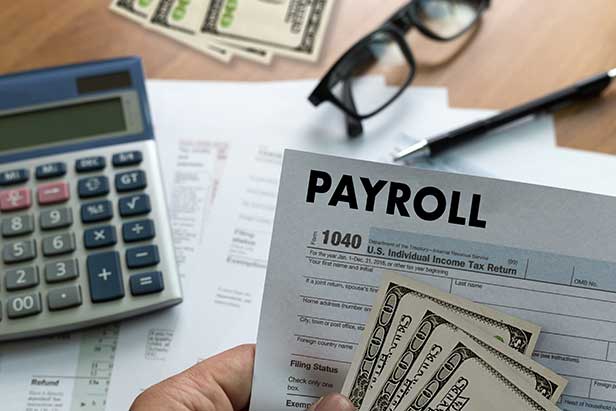News August 31, 2020
Promo Firms Weigh Payroll Tax Deferral
Business owners in the promotional products industry have told Counselor they’re unlikely to implement the payroll tax deferrals created under a new initiative from President Trump.
President Donald Trump’s payroll tax deferral plan takes effect Tuesday, Sept. 1, but it’s uncertain how many employers will participate in the optional initiative, which is facing questions and criticism from business owners, tax officials and others.

Employers in the promotional products industry are among those considering how to handle the deferral, which postpones some payroll taxes that would usually be due between Sept. 1 and Dec. 31, making them instead due between Jan. 1 and April 30, 2021. The postponement gives employers the option to stop withholding from paychecks the 6.2% payroll tax that represents an employee’s share of Social Security taxes. The deferral eligibility is only applicable to workers making less than $104,000 on an annualized basis.
Trump’s aim with the deferral is to put more cash in the hands of working people to help accelerate consumer spending and thus strengthen the U.S. economy, which the coronavirus pandemic has enfeebled – something the promo industry knows firsthand following a historic plunge in sales in the second quarter.
Still, business owners in promo and beyond are leery of the deferral. For one thing, they point out that the tax will still ultimately have to be paid, barring the unlikely event that Congress would approve forgiving the levies owed (something Trump wants). Even if there’s a temporary reprieve now, the taxes would still have to be paid in the new year, plus what would be owed for that time period, business owners point out.
You should call your payroll office, ask what their plans are.
— Kai Ryssdal (@kairyssdal) August 29, 2020
“employers who opt to stop some paycheck withholding now could withhold twice as much as usual early next year.”
Trump Administration Begins Payroll Tax Deferral Plan - WSJ https://t.co/tgnQLa1zeU
“Paying it later still means you have to come up with the funds,” said Howard Potter, owner of Utica, NY-based distributorship A&P Master Images (asi/102019). “As such, we’re not deferring anything. We are paying the taxes like normal.”
Some, like Danette Gossett, are still weighing how to handle the payroll tax deferral. Gossett, though, is leaning toward either paying the tax per normal or banking the money “so I don’t come up short later. Ultimately, it will come due at some point and then you owe more at one time potentially,” said Gossett, owner of Miami-based distributorship Gossett Marketing.
Other promo industry professionals agree there’s too much uncertainty around the deferral plan to change from the normal course of withholding.
“We will most likely opt out of the payroll tax deferral as the payback provisions of the ‘short-term loan’ would create a hardship for both the employer and employee,” said David Peden, chief financial officer of Top 40 supplier The Magnet Group (asi/68507).
On Aug. 8, Trump ordered the Treasury Department to allow the tax deferrals. He was able to do so under a law enables the Treasury Secretary to postpone tax deadlines following a disaster – the catastrophe in this case being COVID-19. Still, Trump can’t erase the taxes entirely. That would take an act of Congress and is unlikely.
As The Wall Street Journal has reported, a significant point of concern for employers is that if they stop withholding taxes without any guarantee that Congress will forgive any deferred payments, they could “find themselves on the hook. That is a particular risk in cases where employees change jobs and employers can’t withhold more taxes from later paychecks to catch up on missed payments.”
Some critics of the deferral say it doesn’t offer a real hiring incentive and provides more money to people already working instead of the struggling unemployed. Certain legislators have said the deferral could potentially destabilize Social Security funding, while some have called the deferral a populist political move from Trump intended to spur support in the runup to the November presidential election.
“The only purpose of this scheme is to give the illusion of a tax cut before the election,” Seth Hanlon, senior fellow at the Center for American Progress, a group aligned with Democrats, told the Journal.
The U.S. Chamber of Commerce and others, including the National Council of Chain Restaurants, has said the deferral plan likely won’t catch on with member businesses. “Many of our members will likely decline to implement a deferral, choosing instead to continue to withhold and remit to the government the payroll taxes required by law,” the groups have declared.
The Internal Revenue Service has said it fears “too many employees will be unprepared for the higher tax obligation in 2021,” including its own workers.
